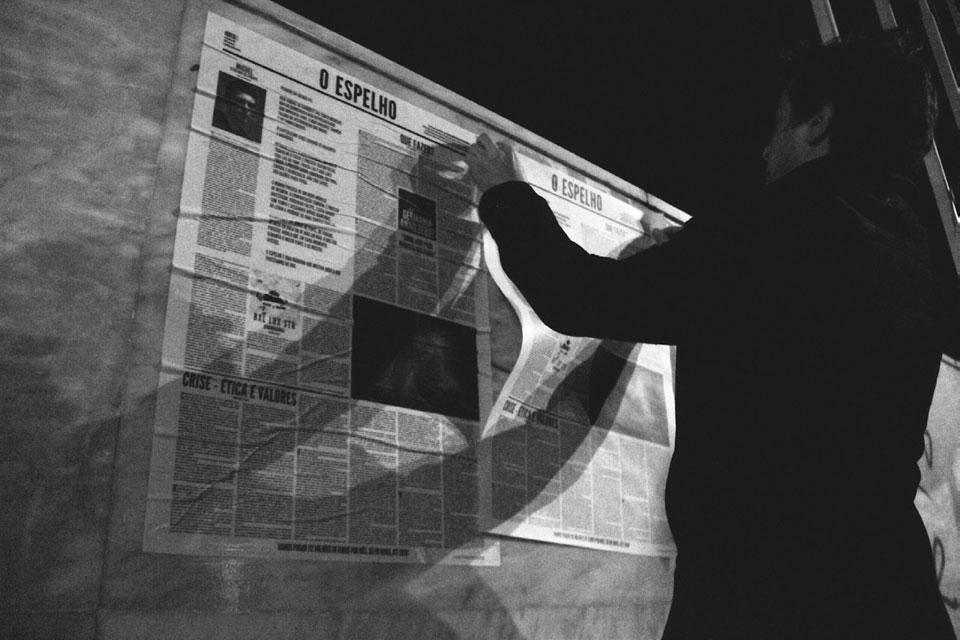The Crisis Buster grants were awarded to ten initiatives that propose long-term civic and social projects for the city of Lisbon. From start-ups, small-scale interventions and art projects to strategic, political and architectural ideas, the Crisis Buster grants seek to help kickstart schemes that contribute positively to the public realm. 152 applications from 19 countries were received for the Crisis Buster grants, mostly from Portugal (81), Germany (15) and the United Kingdom (12). Below are the ten winning proposals.
Terrapalha: Beautiful, Low Tech & Do-It-Yourself Solutions
Awarded a grant in the amount of 2500 €
Beautiful, Low Tech & Do-It-Yourself Solutions is an open laboratory in a public Lisbon garden, where workshops, presentations and discussions sessions will be held involving friends, guests and the community. This lab will function for three weeks, in a space built by the team as a practical project for the first of three workshops dealing with low budget, ecological, innovative, and DIY techniques for building and energy. Beautiful, Low Tech & Do-It-Yourself Solutions seeks to teach solutions, create, improve skills, empower and inspire people.
Associação Cultural O Moinho da Juventude: South Entrance — Bairro Alto da Cova da Moura
Awarded a grant in the amount of 2500 €
The project for South Entrance functions as a starting point for the requalification of the run-down neighbourhood of Bairro Alto da Cova da Moura's different entrances. The South Entrance holds great strategic importance, giving access to the the sports pavilion, as well as some cultivated land tended to by the community. This entrance also serves the nursery. Despite its spatial and community potential, it is currently severely neglected, which reflects quite negatively on the neighbourhood.
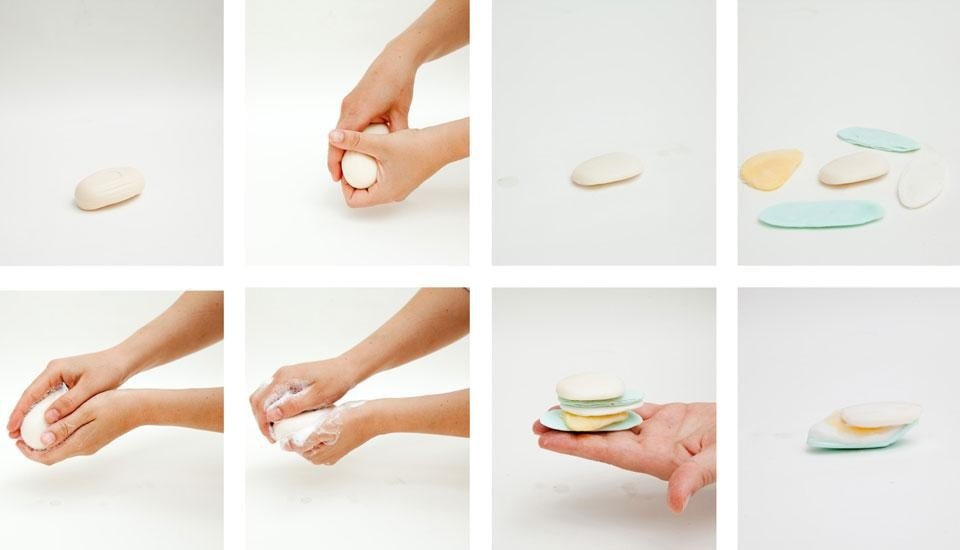
Awarded a grant in the amount of 2500 €
Genius Loci seeks to introduce to Triennale visitors, as a casual encounter, a list of restaurants that are expected to close down are suggested near each exhibition or event venue. Simultaneously, the initiative proposes a series of "Restaurant Trails" recommending the experience of having a meal in one of these Lisbon establishments as a unique experience. By inviting Triennale visitors to enjoy local eateries, the project allows them to inadvertently play a role in keeping them open for business, while raising awareness to their tangible and intangible heritage.
normalearchitettura: The Object that wanted to keep being itself
Awarded a grant in the amount of 2500 €
This initiative proposes an unorthodox economic model that prolongs the life and use of an object. The project transforms local artisan shops in Lisbon into the headquarters of a week-long workshop with students, who will be taught the techniques needed to extend object life. At the end of the week the craftsman shop will inherit the content of the workshop, becoming a reference point for all those interested in acquiring either products or learning techniques. Another outcome of the workshop will be a set of instructions that can be freely shared with anyone.
frame collective: Pátio Ambulante
Awarded a grant in the amount of 2500 €
Pátio Ambulante is a small scale plan to build an exchange platform in chosen pateos of Lisbon in order to enable interaction, support local businesses and projects. The element connecting this network is an old "408 pátio unit" fire truck. The fire truck seeks to be practical and work as an ice-breaker, as it conjures up childhood dreams and a memory of heroic hope. It offers affordable space for an exchange market or for any kind of needed equipment. The truck is financially self-sufficient and will hold a small ice-cream shop.
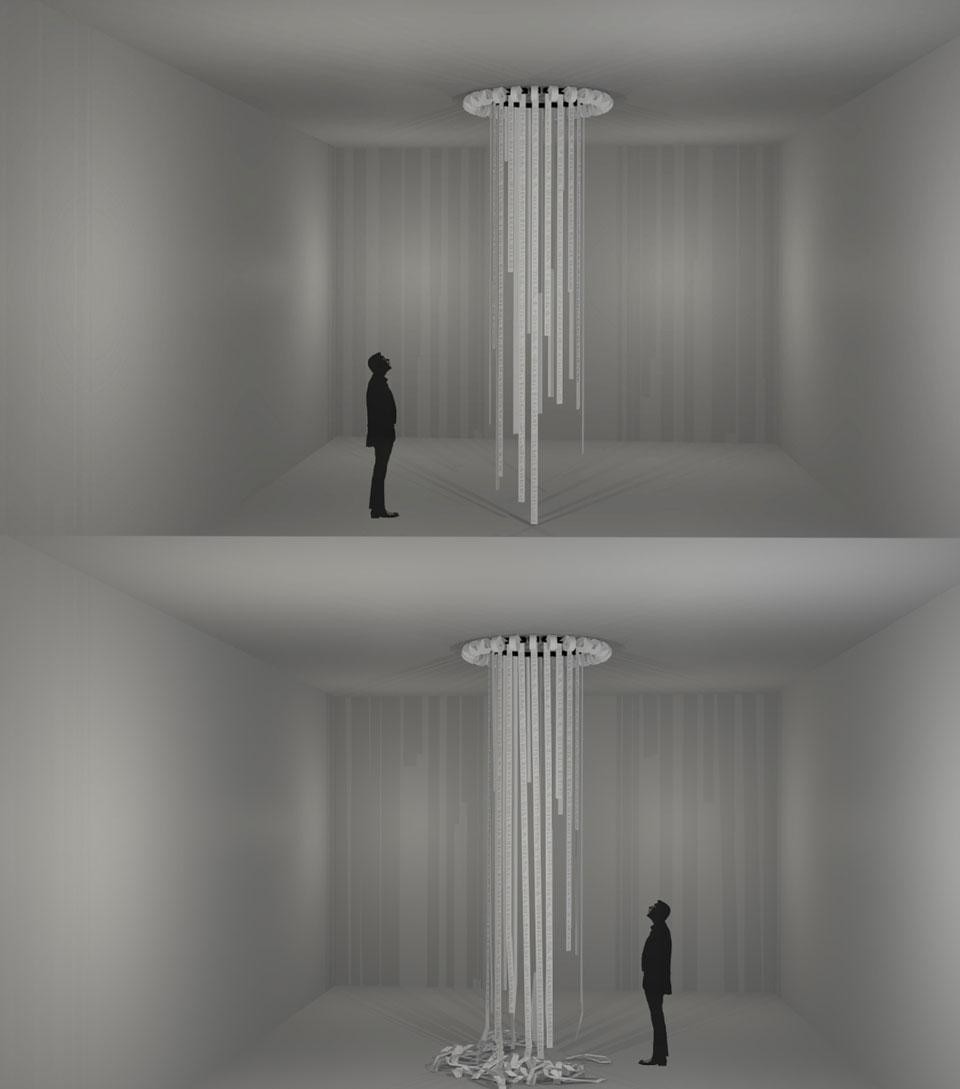
Awarded a grant in the amount of 2500 €
The Cozinha da Casa do Vapor is an interdisciplinary project, crossing architecture and cooking, questioning food management, waste, recycling and the transmission of traditional knowledge around it. With the construction of a sustainable, communical kitchen at a site developed by EXYZT Collective, the project seeks to offer alternatives to the breakdown of family and social ties, including loss of private homes, caused by the crisis. Communal meals will be organized to boost social cohesion, and encourage people to re-use structures designed for the site in a sustainable manner.
Newspaper "O Espelho": O Espelho
Awarded a grant in the amount of 2080 €
The project consists in the publication of two issues of the wall newspaper O Espelho. The issues will be published during the 2013 Lisbon Architecture Triennale, posted in the streets of the city, cladding its walls with content free for all. Freedom of press leads to freedom of thought, and O Espelho is a DIY tool to bust the crisis.
Artéria: Agulha num Palheiro ["Needle in a Haystack"]
Awarded a grant in the amount of 2500 €
Agulha num Palheiro wants to involve citizens in the process of Lisbon's rehabilitation by bringing people inside hidden, vacant houses and opening possibilities for their use. A visual universe will be presented in three short films, shot in three vacant houses that illustrate three different historical periods of Lisbon, released in sequence to bring the subject into discussion in social networks and media, contributing to build a critical mass around it.
The Crisis Buster grants were awarded to ten initiatives that propose long-term civic and social projects for the city of Lisbon
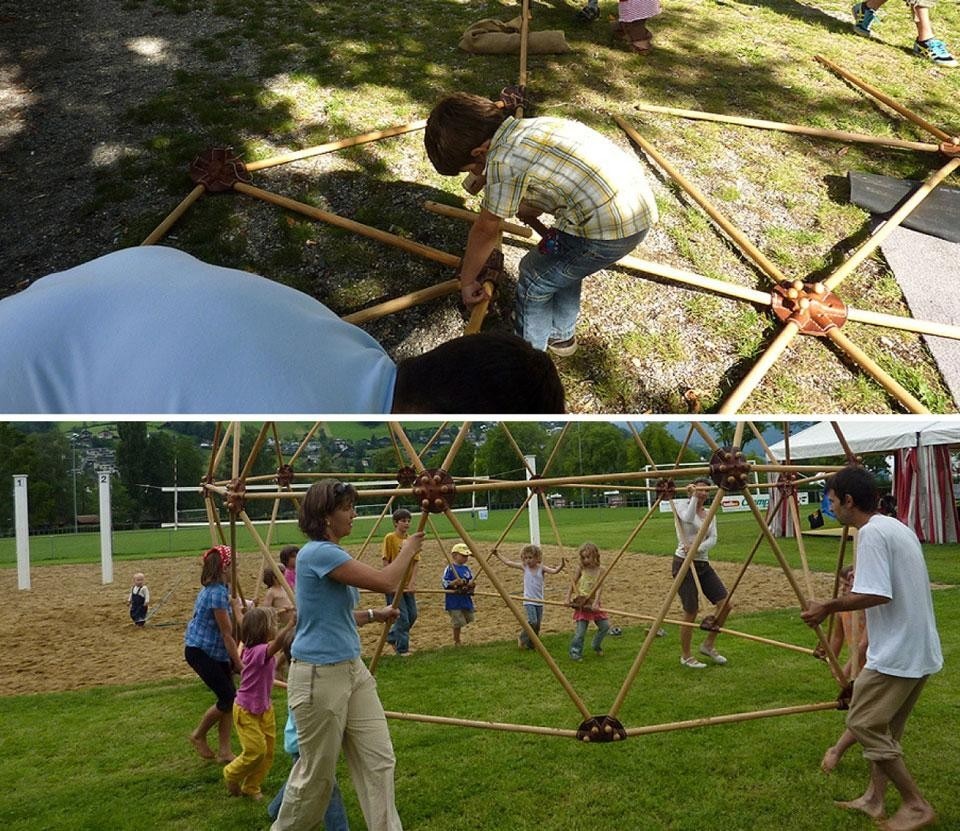
Awarded a grant in the amount of 2000 €
The project's proposal is to create a digital platform to communicate Cozinha Popular da Mouraria — an existing "popular kitchen" and a social business model — to a vast audience through the internet, putting Lisbon on the map of international creative, civic-minded networks. The project seeks to share the tales that radiate from the community kitchen of Mouraria to the neighbourhood itself and beyond; and aims to provide local community members access to digital communication and its sharing potential, thus empowering them.
Inês Neto: Juventude na Street
Awarded a grant in the amount of 2000 €
Juventude na street ["Youth at the street"] will establish a strong youth group in social housing neighbourhood Horta Nova, stimulating cooperation, assertiveness, problem-solving skills, work-related skills, and increasing self-esteem. The project forsees the rehabilitation of communitarian room in the neighbourhood, with the support of an architect but carried out by the girls youth group, giving them a sense of competence and responsibility.
![Astrid Bois d’Enghien, Catarina Vasconcelos, Clio Capeille, Margarida Rêgo, Rain Wu, Simon Kinneir, <em>Fábrica dos Sonhos</em> ["Dream Factory"], winner of the Universities Award Competition
Astrid Bois d’Enghien, Catarina Vasconcelos, Clio Capeille, Margarida Rêgo, Rain Wu, Simon Kinneir, <em>Fábrica dos Sonhos</em> ["Dream Factory"], winner of the Universities Award Competition](/content/dam/domusweb/en/news/2013/03/25/new-ideas-for-the-city/big_408617_6048_05_imagem5.jpg.foto.rmedium.jpg)
Winning project: Fábrica dos Sonhos
Astrid Bois d'Enghien, Catarina Vasconcelos, Clio Capeille, Margarida Rêgo, Rain Wu, Simon Kinneir
Fábrica de Sonhos ["Dream Factory"] is a process-based project that will involve an in-situ team operating over 25 days in Lisbon. Composed by students of different nationalities, this multidisciplinary team is formed by MA students at the Royal College of Art. In response to the Lisbon Triennale theme, the team decided to explore the importance of being close to one's dreams not as mere utopias, but are a way to look beyond the present political and economic constraints. The project unfolds in two di?erent stages: the ?rst is the active collecting of people's dreams, followed by an installation at the Sinel de Cordes Palace.
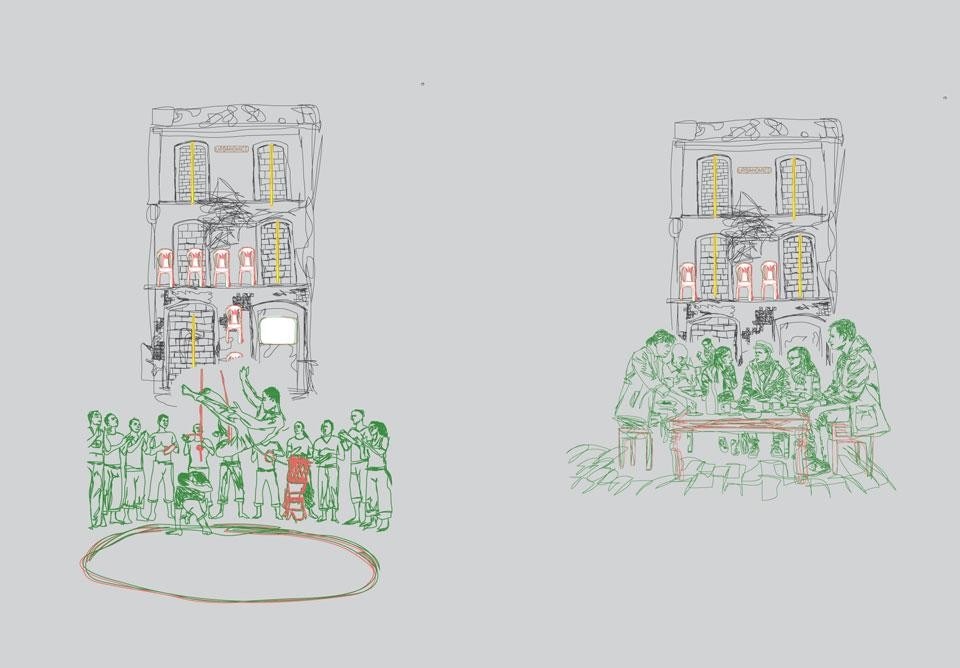
Camille Leproust, Andres Ayerbe Posada
Scripts proposes an ephemeral column made of paper. Twenty-four thermal printers hanging from the ceiling print out its sections. Each printer is tracking a certain topic online, printing out in real time "tweets" about that topic: 24 different sections of the column (a direct reference to the flutes found in the classic Ionic column), 24 subjects that are important elements of the nature of online dissent.
Honourable mention: We don´t need no education — Chamber of architectural diseases
Gabriel Ruiz-Larrea Fernandez, Judit Parejo García, Jorge Sobejano Nieto, Félix Zamora Gómez
This project proposes translating the disorder, the individual, inalienable and shapeless into a multiple and dispossessed space. Visitors are therefore are therefore placed within the disorder, and the notions of content and container, inside and outside are subverted. The chamber of disorders constitutes an experimental generation of spaces.


